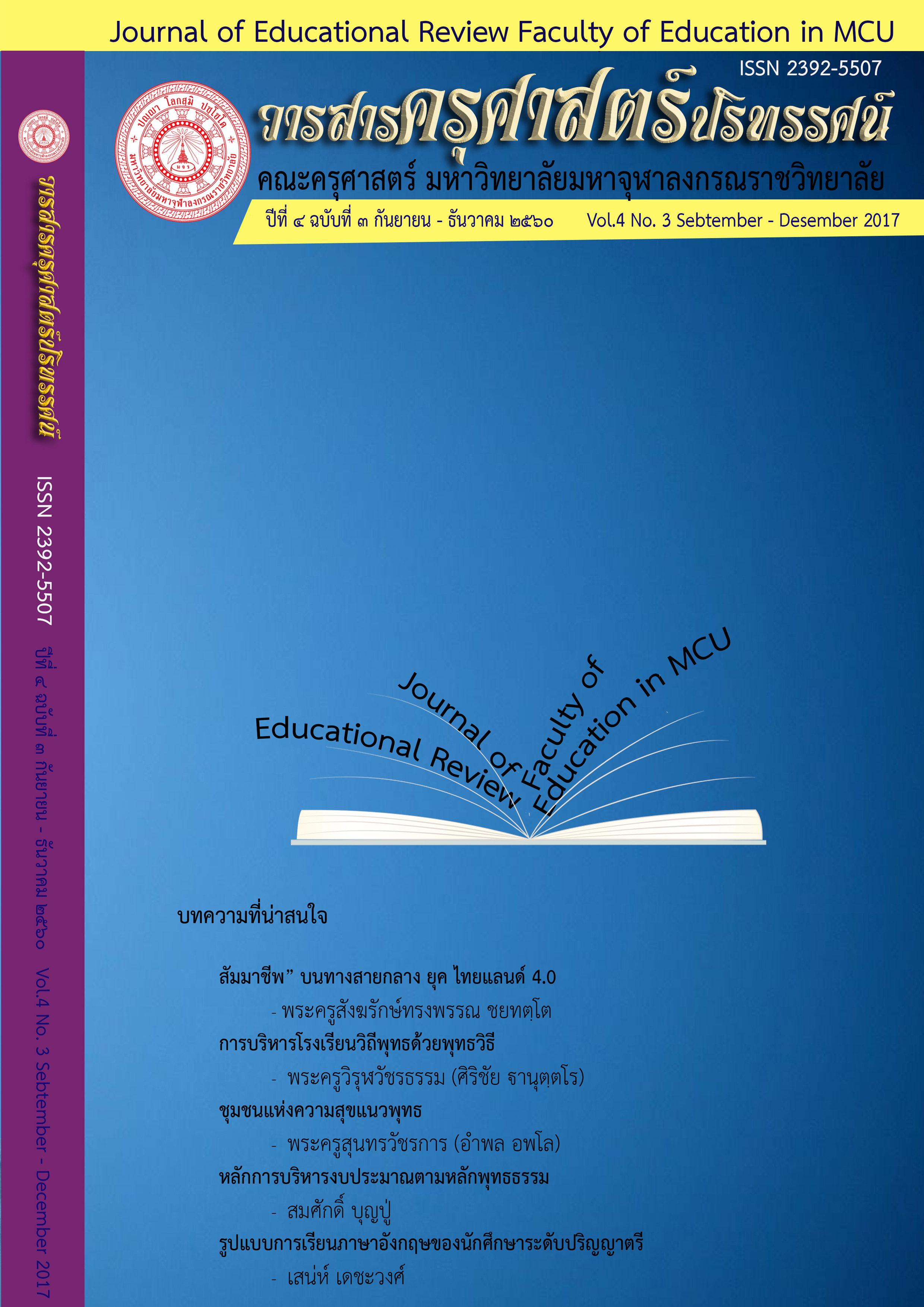A study of Activity-Based Learning Focusing on Multiple Intelligences that Affected Math and Language Abilities of Early Childhood Learners
Main Article Content
Abstract
A study of activity-based learning focusing on multiple intelligences that affected math and language abilities of early childhood learners. A sample group was acquired through a multi-stage sampling. It consisted of 50 early childhood learners aged 3-4 from ๒ centers. A draw was conducted. The first group, the experiment group, consisted of 25 learners from Wat Chatthong (Luang Prachanukul) School. The group learned from the activity-based teaching focusing on multiple intelligences. Another group, the control group, consisted of 25 learners from Rungwitthaya (Pracha Uppatham) School. The group learned from the experience corner designed based on the teacher’s manual of the Local Administrative Development Department. The experiment period covered 4 weeks, 5 days with a total of 20 times. Research instruments consisted of 1) plans of learning at a multiple intelligences center and plans of learning by following the teacher’s manual of the Local Administrative Development Department; 2) math test and the language test. Quasi-experimental research was employed. Pre and post experimental tests were conducted. Statistics used to analyze the data was Multivariate of Analysis of Variance (MANOVA).
Article Details
ทัศนะและความคิดเห็นที่ปรากฏในบทความในวารสารฉบับนี้ถือเป็นความรับผิดชอบของผู้เขียนบทความนั้นเพียงผู้เดียว และไม่ถือเป็นทัศนะและความรับผิดชอบของกองบรรณาธิการ
กองบรรณาธิการขอสงวนสิทธิ์ในการคัดเลือกบทความลงตีพิมพ์และจะแจ้งให้เจ้าของบทความทราบหลังจากผู้ประเมินบทความตรวจอ่านบทความแล้ว
ต้นฉบับที่ได้รับการตีพิมพ์ในวารสารครุศาสตร์ปริทรรศน์ คณะครุศาสตร์ มหาวิทยาลัยมหาจุฬาลงกรณราชวิทยาลัย ถือเป็นกรรมสิทธิ์ของคณะครุศาสตร์ มหาวิทยาลัยมหาจุฬาลงกรณราชวิทยาลัย ห้ามนำข้อความทั้งหมดหรือบางส่วนไปพิมพ์ซ้ำ เว้นเสียแต่ว่าจะได้รับอนุญาตจากมหาวิทยาลัยฯ เป็นลายลักษณ์อักษร


